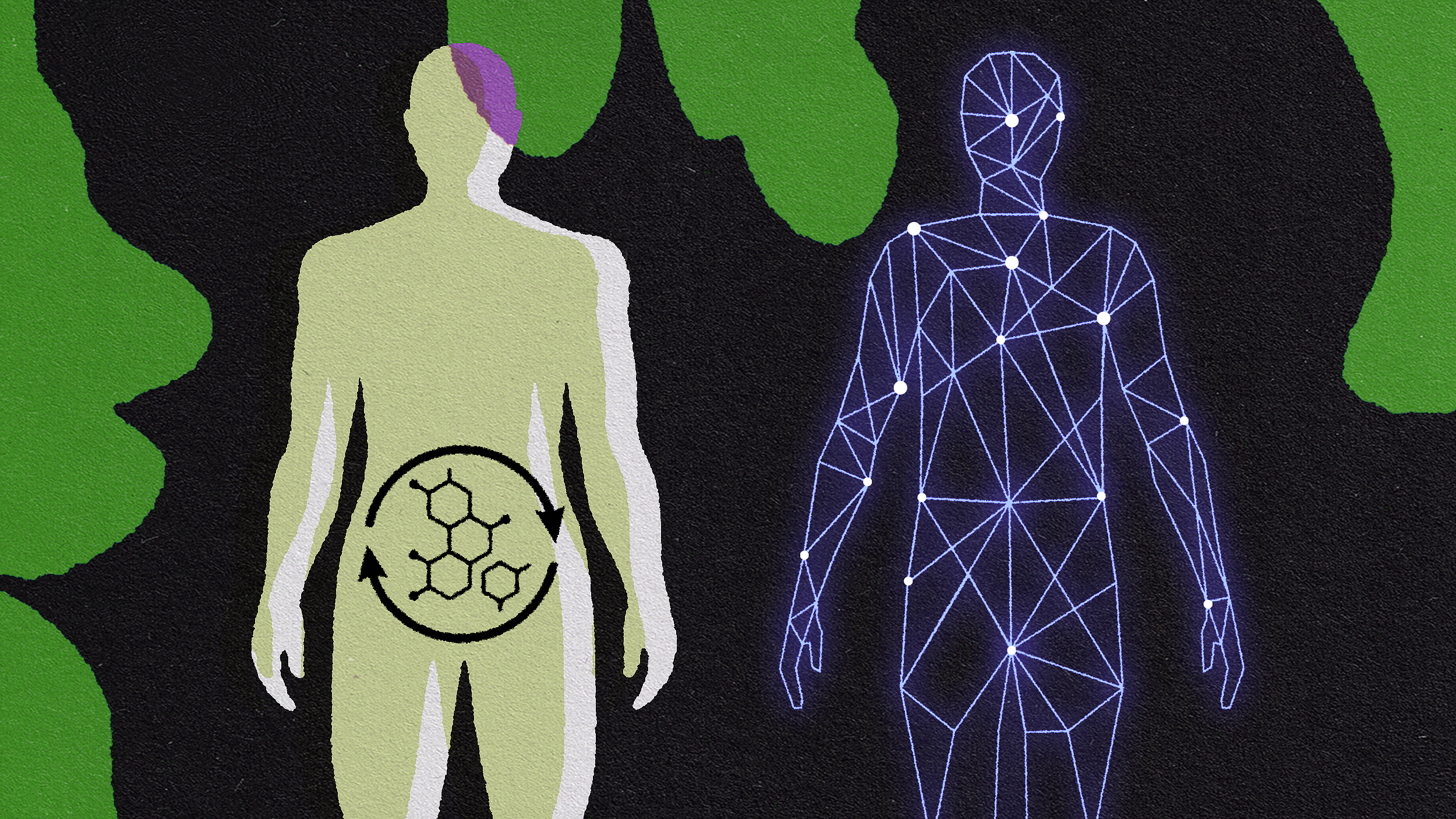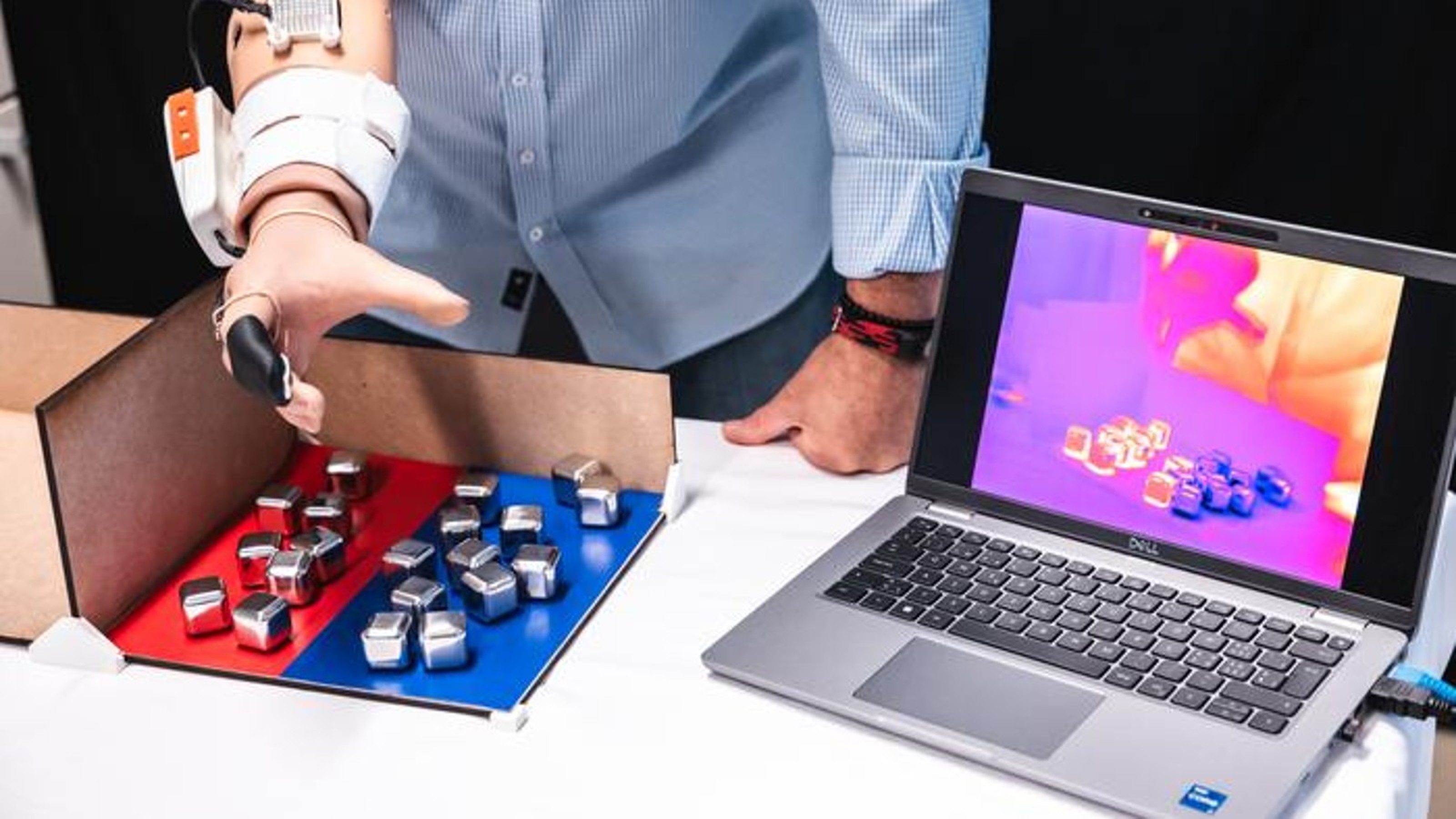How old are you? Odds are your answer is a number of years — a metric known as your “chronological age.” Although this number isn’t meaningless, it fails to capture the full picture of aging. Your “biological age” may be a far more useful metric. This is the degree to which your biology has changed over a given period of time.
“Aging is starting at a molecular level, and over time this is going to give rise to all the functional changes and manifestations that we tend to see with aging,” says Dr. Morgan Levine, author of the book True Age. Unlike chronological age, your biological age is malleable: Scientists know that it’s possible to slow biological aging by maintaining a healthy lifestyle.
But is it possible to actually reverse the aging process? See what Dr. Levine has to say about the potential of anti-aging research in this Big Think interview.
MORGAN LEVINE: Is science gonna actually cure death? The idea of why we age or can you reverse aging or be immortal has actually been a topic of interest for centuries.
I think a lot of people don't realize how much power we actually have over our aging process. Most people think of age or aging in terms of chronological time. So we all know how many years we've been alive, and we usually measure our aging in terms of months, days, years since we were born. We almost give it a magic number.
So you're old when you're 65, or you're old when you can see it in the mirror. And we put a lot of emphasis and importance on this measure, but actually this isn't the number that counts.
Scientists think aging is starting even before birth, and it's really this continuous process that's happening over our entire lives. The most obvious thing that people associate with aging is changes in their skin, changes in body composition, graying of hair. We experience functional changes: our ability to walk, our balance, vision, hearing. And also changes in our risk of developing different diseases. But in reality, these aren't where aging is actually starting. These are what we would call the emergence or the manifestations of aging.
We really think aging is starting at the molecular and cellular level, and once that reaches a given threshold, that's when we actually can start seeing this in the mirror in our everyday lives.
I'm Dr. Morgan Levine. I study the science of aging, and my book is called "True Age."
So if I were to ask someone how old they were, their immediate response is going to be however many candles they blew out in their last birthday. It's the number on their driver's license or their passport. And really what this is, is this is our chronological age. It's just the amount of chronological time you've been alive. This number doesn't hold that much meaning, except that it happens to be correlated with this concept of biological aging.
So unlike chronological age, biological age is a thing that we care about. And what scientists mean by biological age is the degree to which your biology has changed over a given amount of time, and we think these changes are gonna be maladaptive. They're gonna lead to more dysfunction, more decline, and ultimately more disease. And we can actually see these changes on our faces in terms of skin wrinkling, in our hair with graying. But aging is starting at a molecular level, and over time, this is gonna give rise to all the functional changes and manifestations that we tend to see with aging.
Many diseases of aging can actually be attributed to dysfunction decline in specific organ systems. So something like diabetes can be thought of as a decline in our metabolic system. Things like Alzheimer's disease are declines and dysfunction in our central nervous system. And another disease of aging called sarcopenia, which is the muscle wasting that we see with aging, can be thought of as declines in our musculoskeletal systems.
People have been saying that we should try and quantify this concept of biological age since the 1980s. So Alex Comfort was the first person that proposed that there was this idea of biological age that could be measured. But it probably wasn't until around 2010, 2012 that people were actually putting forth algorithms that we could show and validate were decent, although maybe not perfect measures of this concept of biological aging.
It's gonna tick forward in a monochromatic fashion- vs. biological age we actually think is malleable. We know that aging can be slowed. We see this when comparing across species. Species don't decline all at the same rate. Some of them actually do this at such a slow rate, what we call 'negligible senescence,' that we actually can't observe aging in those systems. So usually to tell how fast different organisms are aging, we look at their 'survival curve.' Do you see an increased risk of mortality in a population as a function of time? And we think of that as the overall rate at which that type of species is actually aging. And we also can see this in humans. Clearly, not everyone who has lived 50 years has declined in terms of their health status and functioning to the same degree. So this is really where we get into this idea of can we measure biological age?
A great way for people to actually use this science is to track their Phenotypic age. We came up with this idea of Phenotypic age back in 2018. This was really meant to capture your overall phenotype or physiological rate of aging. We tried to actually use very commonplace clinical chemistry or lab measures. So these are things that you would go to your physician for your annual appointment, and probably are already getting measured. Things like functioning of different organs including our liver, kidney. They capture metabolic health, they capture lipids, and to some degree, they're also capturing things like our inflammation and immune profile. And we think this measure of aging is really important because it captures the physiological changes that we actually think precede the dysfunction that we see arising in disease.
If you looked at a population, you'd expect to see a normal distribution where you find most people are predicted to be the same biological or Phenotypic age as they are chronologically. But we know there's also spread on either side, and when we look at the average, for instance, United States population, we see that kind of that standard deviation is around five years. Granted, you can get extreme outliers, so people who look 10 or maybe even 20 years older or younger than expected for their chronological age, but most people will fall in that kind of plus or minus five years of their chronological age.
If you have already visited your doctor and you've got an annual blood test, you probably can get your Phenotypic age test for free. So there are online calculators that list the nine biomarkers that you actually need to calculate your Phenotypic age. These are freely available on the web. So all you would need to do is go and find your most recent lab test, input the values, and the algorithm will actually produce a Phenotypic age measure for you.
So a lot of people are probably thinking, "I don't want to know what my biological age is. I'm scared I'm gonna get a higher number. I need to be on my best behavior for a month before I actually track it." But it's really important to remember that this number's not set in stone. It's not dictated by our genes, and there's so much you can do to actually impact it. So it's more important to actually have that information, and to actually use that to try and improve your life overall.
So can we reverse aging? Until the science actually comes up with drugs or treatments to actually try and target aging, lifestyle right now is actually our best ticket in terms of slowing our aging process. Living systems are adaptive. We adapt to our environment. We adapt to the things we experience. So you can actually boost things like resilience through different lifestyle behaviors. For instance, physical activity can increase our resilience and buffer us against further stressors down the road. Different dietary regimens can increase our resilience as well. Whether we're obese, what we're eating, whether we smoke or drink, actually has a very massive impact on people's Phenotypic age overall.
And these aren't new things. These are things that we've been told about from let's say, our mothers or grandmothers. So they shouldn't be a surprise to people, but I think people don't realize how much these actually impact how fast they're gonna age, and also their propensity for developing different age-related diseases.
Aging is the biggest risk factor for most of the diseases that people worry about. And scientists think that rather than trying to treat each of those diseases individually, if we were to actually slow the rate at which people were aging and slow the decline in our different kind of organ and physiological systems, we could either prevent or perhaps lessen the impact of many of these diseases. So it's not just giving people a longer life, but it's keeping them healthy and functional for as long as possible.
In the end, it's really important for people just to realize how much power they actually have in terms of impacting the way in which they're gonna age and impacting the risk of disease. Our risks of disease are not written in our genes. Yes, we will probably all age, and we're not going to essentially stop that. But the rate at which that happens and the length of time that you can maintain health and optimal functioning, really comes down to a lot of what you do in your everyday life.
NARRATOR: To learn even more from the world's biggest thinkers, get Big Think+ for your business.







